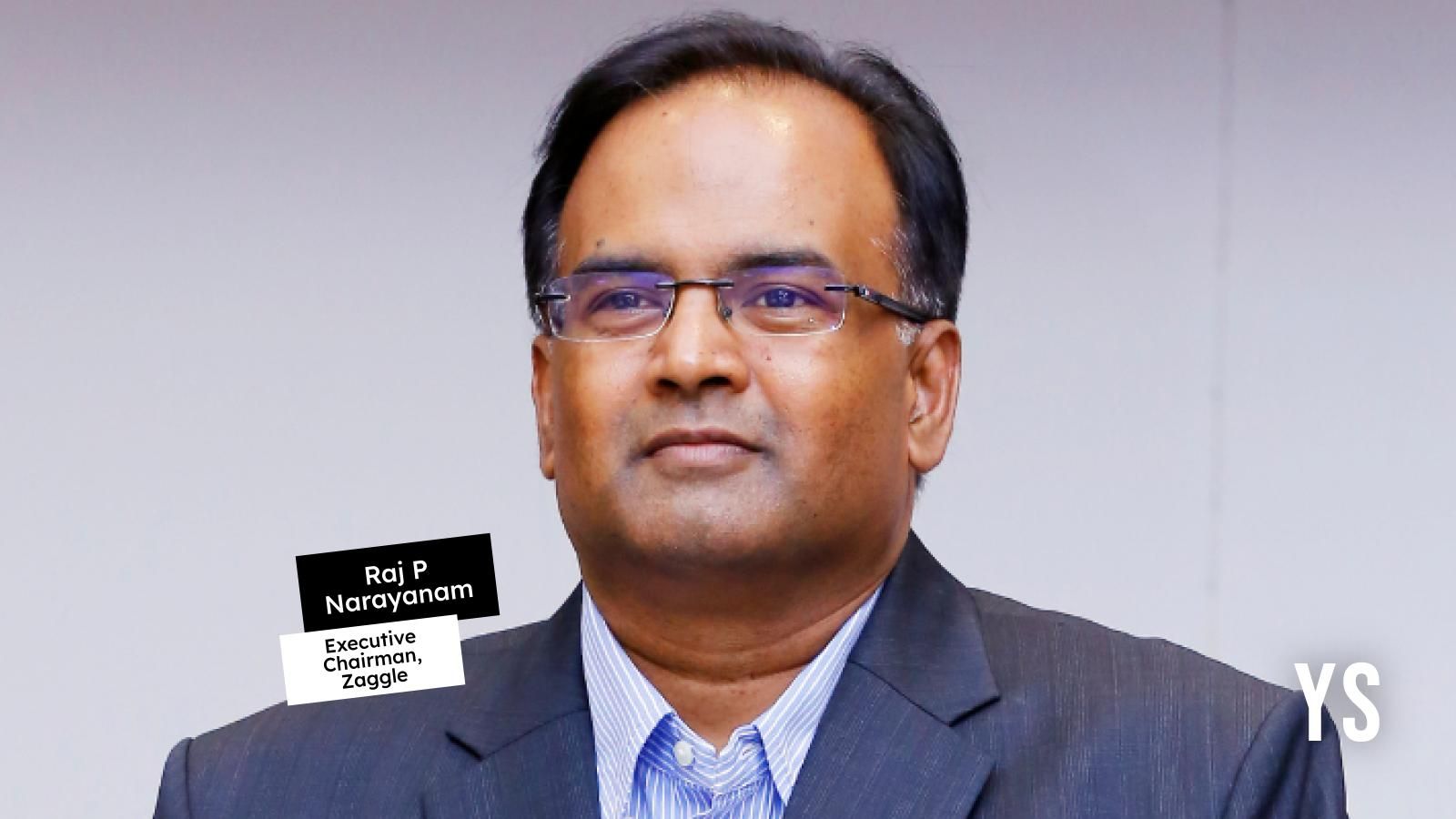GaNgs of deeptech: Why this startup’s GaN bet may be key to India’s semiconductor boom
IISc-incubated startup AGNIT Semiconductors is developing and manufacturing GaN-based semiconductors, challenging the country’s Silicon-based growth.


Technology is evolving at such a rapid pace that it’s leaving Moore’s Law behind. And the rapid growth of critical technologies, including telecommunications, electric mobility, and energy-efficient lighting, requires high-power, high-frequency electronic systems.
A promising solution is gallium nitride (GaN) semiconductors, which can tolerate higher power density and can operate at higher voltages.
Around a decade ago, a septet of researchers, scientists and professors at the Indian Institute of Science (IISc) realised the element’s potential and proposed establishing a GaN foundry to the Indian government. In the meantime, CEO Hareesh Chandrasekar, Madhusudan Atre, Mayank Shrivastava, Director Muralidharan Rangarajan, Shankar Kumar Selvaraja, Digbijoy Nath, and Managing Director Srinivasan Raghavan set up the deeptech startup AGNIT Semiconductors in 2019.
“The government eventually approved a small-volume GaN foundry to the Foundation for Science Innovation and Development—the incubation arm of IISc, around 2021. However, we had already incubated AGNIT Semiconductors as a startup at IISc a couple of years ago,” informs co-founder and CTO Nath.
AGNIT makes GaN-based semiconductors, an alternative to the widely used Silicon-based semiconductors.
“GaN has game-changing potential in defence and commercial sectors. With a wide bandgap of 3.4 eV versus silicon’s 1.1 eV, GaN enables higher voltage, frequency, and temperature operations, making devices faster, more efficient, and capable of handling greater power densities. These advantages are critical for applications like radars, electronic warfare, and secure communication, where GaN significantly boosts performance and reliability,” he tells YourStory.
Despite the advantages, GaN adoption has been slower because of higher production costs and export restrictions by the US, specifically the International Traffic in Arms Regulations. However, the founders believe the landscape is shifting with a rise in the demand and development of more cost-effective practices.
Early days and operations
Nath believes that in the business of manufacturing semiconductors, R&D is a never-ending process. “Although we have customer traction, we are still involved in product-oriented R&D to improve our technologies. Semiconductor manufacturing is a capital-intensive pursuit and requires an entire ecosystem of OEMs, cleanroom-grade supplies of chemicals and other consumables, wafer manufacturers, end users such as system developers, etc,” he says.
The Bengaluru-based deeptech startup works with both private and public strategic players, including government bodies and defence PSUs; the founders don’t want to specify clients. “There has always been a lot of interest and excitement from customers on gallium nitride technologies for strategic applications,” he adds.
AGNIT has been operational since 2021. “Several of our products have been tested, and customers have given positive feedback. We basically make GaN wafers, discrete GaN components (transistors), and power amplifiers based on those components, which are required in wireless transmission,” shares Nath.
Beyond wireless transmission, AGNIT also deals with radiofrequency (RF) applications across defence, aerospace, and telecommunications. This includes cutting-edge systems such as advanced radars, electronic warfare platforms, 5G infrastructure, and satellite communications, where GaN’s high efficiency, power density, and thermal resilience offer a significant edge.
“We’re also exploring applications in power electronics, particularly in electric vehicles and data centre power systems, where the demand for compact, high-efficiency solutions is rapidly growing. Backed by over 15 years of IISc-led R&D, our company looks to harness GaN's full potential to drive next-gen innovation across both strategic and commercial domains,” he says.
AGNIT is scaling its tech to meet global standards of manufacturing 4-inch wafers. These wafers are deposited with GaN thin films on a silicon carbide substrate to configure them for RF applications.
The 22-member startup manufactures its chips at the Gallium Nitride Ecosystem Enabling Centre and Incubator, a MEITY-funded dedicated GaN technology incubator and foundry managed by the Foundation for Science Innovation and Development, IISc. Beyond the strategic market, the team also intends to explore the power electronics sector. AGNIT’s immediate target is to sell 100,000 GaN chips over the next 12 months. It is currently running small-volume pilots with alpha customers.
The industry at large
Nath believes the semiconductor industry, both globally and in India, is at a pivotal stage. And our country—traditionally a backend provider of design and IT services—is now shifting towards building a full-fledged semiconductor ecosystem.
“Strategic initiatives like the India Semiconductor Mission and production-linked incentive schemes aim to reduce import dependency and establish India as a key player in the global value chain. Crucially, semiconductors are now recognised as strategic assets impacting everything from smartphones and electric vehicles to defence systems and AI infrastructure. This convergence of geopolitical urgency, policy support, and market demand is opening up new opportunities,” he shares.
However, he believes that for India to truly lead the semiconductor industry, it needs a “long-term, innovation-first mindset”. The bigger part of the puzzle to achieving dominance in the market would need a culture of developing more deeptech startups and a higher volume of indigenous tech. According to the latest Jefferies Report, the Indian industry, despite having potential for success in semiconductors, is plagued by an underdeveloped supply chain, limited specialised manufacturing talent and stiff global competition.
“The solution isn’t just building fabs (fabrication plants to manufacture semiconductors), it’s about creating an agile, innovation-led ecosystem,” he says, adding that India can play a much larger role not just as a creator of globally competitive semiconductor technologies.
Funding and growth
The startup is still in the early stages and is primarily focused on expanding its capabilities and accelerating product development. It has raised a total of $4.8 million since 2021. This includes seed funding of $3.5 million in 2024 led by 3one4 Capital, with participation from Zephyr Peacock and Lakshmi Narayanan, former CEO of Cognizant.
“As a deeptech startup, profitability is a few years away, but we’re encouraged by the healthy margins we’re seeing at the product level. We’re proud to have strong backing from Indian investors who share our long-term vision. Moving ahead, we plan to raise additional capital to support our growth and technology roadmap,” says Nath, while choosing not to reveal any specific targets.
The startup largely competes with international players like the US-based MACOM and Qorvo.
Edited by Kanishk Singh




![The Largest Communities on Reddit [Infographic]](https://imgproxy.divecdn.com/vfTS-YsC_ZrqM6F4tAXJgV6qj3gCHSsf2dvHufDbrrQ/g:ce/rs:fit:770:435/Z3M6Ly9kaXZlc2l0ZS1zdG9yYWdlL2RpdmVpbWFnZS9sYXJnZXN0X3JlZGRpdF9jb21tdW5pdGllczIucG5n.webp)





























































































































































































